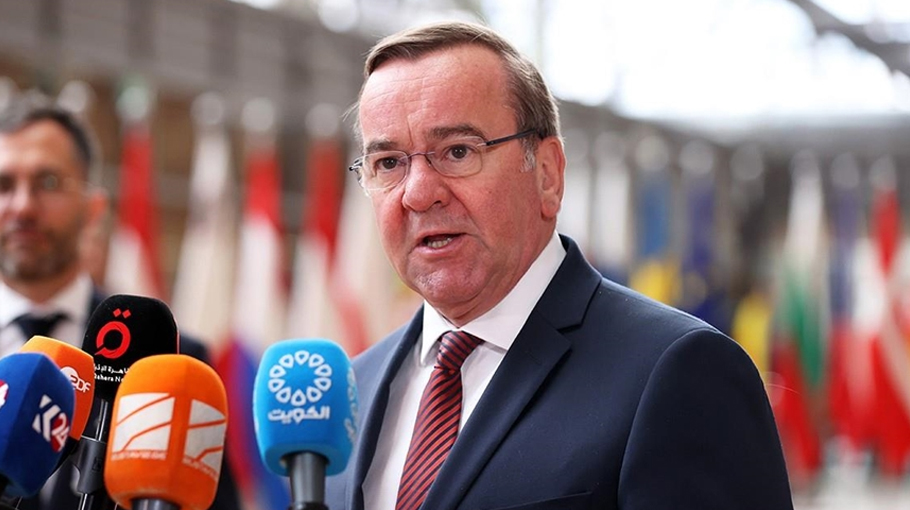Europe on a razor’s edge: Germany prepares, but are we ready?

Europe's security landscape has grown increasingly tense in recent years. NATO war games on Ukrainian soil showcased their latest military advancements, while Russia's measured response in Ukraine hinted at a calculated strategy. Now, Germany's unveiling of its first updated wartime plan since the Cold War – the "Framework Directive for Overall Defense" – reignites a chilling question: is World War III inevitable?
A Haunting Echo of the Past: Germany's Renewed Focus on Defense
Germany's detailed 67-page document outlines a stark shift in policy. The "Framework Directive" envisions a scenario reminiscent of the Cold War, with mandatory conscription, food rationing, and the conversion of public spaces into air raid shelters. This move, driven by the perceived threat from Russia, marks a significant departure from Germany's traditionally anti-militaristic stance.
The Potential Players: A Global Chessboard
In a hypothetical World War III, alliances would be shaped by current geopolitical dynamics, historical ties, and strategic interests. The Western bloc might comprise the USA, NATO members, Australia, New Zealand, Japan, and South Korea. Russia, on the other hand, could find itself aligned with China, Iran, and North Korea. India, Brazil, and Turkey could potentially emerge as swing states, their allegiances hinging on the evolving situation.
Beyond Battlefield Might: A Clash of Strategies
Strategically, this conflict would be a clash of titans. The West would likely leverage its collective defense, technological superiority, and economic sanctions. The East, in contrast, might rely on strategic alliances, resource control, and asymmetric warfare tactics. The outcome would be highly uncertain, a complex interplay of military, economic, political, and social factors. A hypothetical World War III would likely cause unprecedented devastation, rendering the concept of "victory" a costly and hollow ambition for all involved.
In a hypothetical World War III,
alliances would be shaped
by current geopolitical
dynamics, historical ties,
and strategic interests
Russia's Multifaceted Approach: A Blend of Force and Finesse
Russia's strategy in a larger conflict with Europe would likely be multifaceted. While the ongoing war in Ukraine provides experience and a baseline for readiness, it also presents challenges in resource allocation and strategic focus. Russia might employ a combination of rapid offensive operations, cyber attacks, A2/AD (Anti-Access/Area Denial) strategies, and nuclear posturing. Their aim would be to disrupt and weaken European defenses while exploiting political and social divisions to their advantage.
Collective Strength vs. Swift Action: Europe's Balancing Act
Despite Russia's formidable military with potent missile technology and strong electronic warfare capabilities, Europe collectively possesses greater resources and technological prowess. NATO member states hold an advantage in terms of defense budgets, advanced tech, and overall personnel. However, Europe's Achilles' heel lies in translating that potential into a cohesive response. Swift, coordinated action is paramount, and political will must overcome internal divisions. Germany's leadership will be crucial in forging a united European front.
The World Watches: A Turning Point for Global Security
The world will be scrutinizing Germany's response. Their actions, along with those of other European nations and Russia, will define the security landscape for years to come. The stark choice remains: will Europe descend into another devastating conflict, or can a path towards peace be forged? The answer will shape the continent's future for generations.
Beyond the Headlines: A Call for Transparency and Diplomacy
As global citizens, we must recognize and address the biases that influence international relations. Critical evaluation of foreign policy and media coverage, acknowledging these strategic considerations, is crucial for balanced and fair approaches to global conflicts. Rising public demand for transparency and justice, fueled by information access and online watchdogs, signifies a shift in global opinion. Ignoring these demands could exacerbate tensions and pave the way for a catastrophic global conflict. The world needs proactive diplomacy and de-escalation efforts. We must be prepared for the worst-case scenario, but let us strive for a future where dialogue triumphs over destruction. Are we ready to choose peace?
Author Del H Khan is a military strategist and global security analyst. He is the author of 'Keeping Peace In A Turbulent World,' A byheart promoter of global peace and a keen follower of the conflicts across the world.




